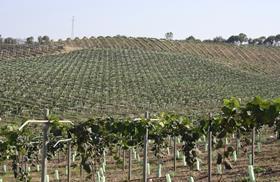
Despite the mounting challenges for Turkish fresh produce exporters, çekok Group’s investments show no sign of ralenting. The closure of the Russian market may have shifted the company’s attention to alternative markets, while security issues in surrounding countries have certainly slowed down deliveries to many Middle East markets, yet efforts by the group to boost volumes and add new products persist unabated.
“çekok Group continues to invest more and more into the business each year,” says CEO Cevdet çekok. “This year, we moved our head office to Tuzla, Istanbul, where we built a new 50,000m2 packhouse and distribution centre.”
This is the company’s fifth, its four other packhouse and distribution centres spread out over four different fruit and vegetable-growing areas in Turkey, with a combined capacity of 1,100 tonnes a day.
“We are also increasing our product range year by year,” he says. “We now offer 45 different fruit and vegetables. In 2017, we plan to offer our customers a variety of salads and herbs in sophisticated, long shelf-life packs.”
In addition to supplying global supermarket chains across Europe through its distribution centre in Bulgaria, çekok is also opening more shops in wholesalemarkets across Turkey to serve the domestic supermarket chains. Meanwhile, the company continues to invest in farming, now boasting around 1,250ha of land, on which it grows 25 different fruit and vegetables.
The group’s apple orchards are always on the increase, while cherry and berry production is currently undergoing trials in two different areas in Turkey. The company has equally planted 150ha of kiwifruit, which will come into production in 2017. More recently, it has signed an agreement with Zespri, the biggest kiwifruit grower and marketer in the world, to grow gold kiwifruitin Turkey.
Such advances are highly encouraging given the currently challenging environment, January’s part-closure of the Russian market being just the latest. As a result, new markets are a priority.
“We started exporting apples not only to North African countries like Egypt and Tunisa, but alsoto Ghana, Côte d’Ivoire, Nigeria and Sudan,” says çekok. “After the latest political issue with Russia, we are focusing on alternative markets such as the Middle East, East Asia, India and, lately, China. The Middle East and Asia are really growing in importance, particularly for lemons and apples.”
Although the Russian authorities elected not to include lemons on their list of banned items from Turkey, most likely due to their popularity among Russian consumers, exporters harboured fears at the start of the latest season.
“The season started with a few scares,” says çekok, “with high volumes leading us to anticipate low prices. However, the rainfall helped prices rise since growers were unable to harvest as much as was demanded. Lemon prices are still increasing, to the highest level we have ever seen. The orange season was smooth, since companies were able to harvest and export the crop, mostly to Russia, just before the ban started in January. Vegetable growers and exporters, on the other hand, have suffered a lot from the ban.”
The violence and chaos in neighbouring Syria and Iraq have equally affected business. “It is difficult, sometimes even impossible, to send goods by truck to Kuwait and Saudi Arabia,” says çekok. “But it takes too long to ship by container, especially for vegetables like tomatoes and cucumbers.”
Imports, on the other hand, are increasing year by year, he says, especially for exotic fruits and other counter-seasonal items. “We import everything direct from the growers in each country, with a set programme for the season. This ensures we can offer a fresh and continuous supply of produce for our customers.”



